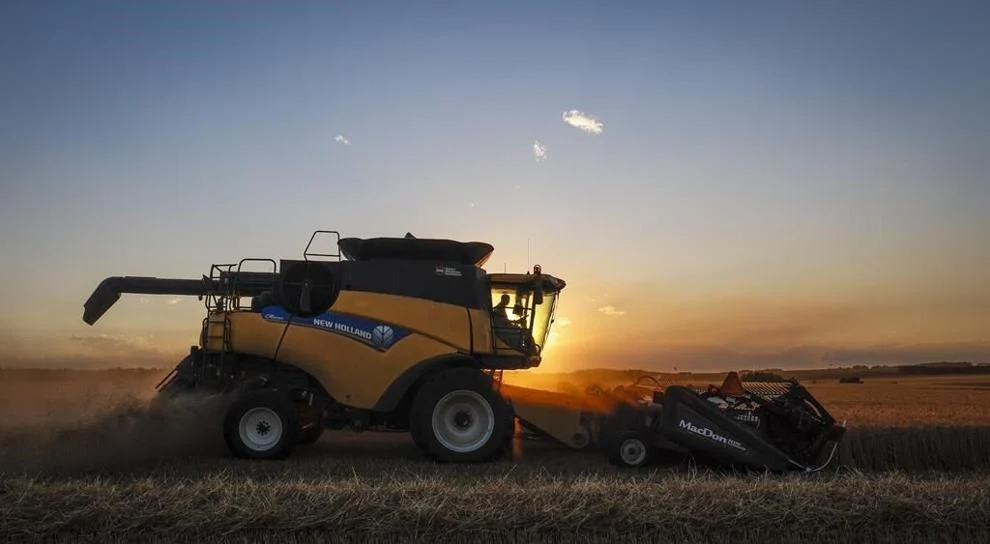“Farmers have had to wait three or four weeks to get repairs done to equipment when they can do repairs themselves. That’s just unfathomable,” said Bill Midcap, whose son is a fifth-generation rancher on Colorado’s eastern plains.
Lawmakers in at least 10 other states have introduced similar legislation, including in Florida, Maryland, Missouri, New Jersey, Texas and Vermont.
Colorado has taken the lead, but Democratic Rep. Brianna Titone, the bill’s sponsor, and Dan Waldvogle, director of the Rocky Mountain Farmers Union, said it’s a potential launch pad for other states and even at the federal level where discussions about similar legislation are already underway.
At the signing ceremony Tuesday afternoon, under a light drizzle of rain, Polis said: “This bill will save farmers and ranchers time and money and support the free market in repair” before exclaiming, “first in the nation!”
Behind the governor and arrayed farmers and lawmakers sat a red Steiger 370 tractor owned by a farmer named Danny Wood. Wood’s tractor has flown an American flag reading “Farmers First,” and it been one of two of his machines to break down, requiring long waits before servicers arrived to enter a few lines of computer code or make a fix Wood could have made himself.
Polis and Titone climbed inside the tractor for a photo as the ceremony ended.
Polis signed the bill after the legislation advanced through long committee hearings, having been propelled forward mostly by Democrats even though a Republican lawmaker co-sponsored the bill. The proposal left GOP lawmakers stuck between their farming constituents pleading for the ability to repair their equipment and the manufacturers who vehemently opposed it.
Manufacturers and dealerships raised concerns that providing tools and information to farmers would allow equipment owners to illegally crank up the horsepower and bypass emissions controls — putting operator safety and the environment at risk.
They also argued that the law would expose companies’ trade secrets. Republican Rep. Richard Holtorf, a farmer himself, further worried that it would push dealerships out of business, especially in rural parts of the state.
The bill’s proponents acknowledged that the legislation could make it easier for operators to modify horsepower and emissions controls. But they argued that farmers are already able to tinker with their machines, and doing so would remain illegal.
The law falls into the broader “right to repair” campaign, which has picked up steam across the country and applies to a range of products, from iPhones to hospital ventilators. Independent mechanics and car owners have access to tools and parts because of a 2014 memorandum of understanding signed by the automotive industry.
Two years ago, President Joe Biden directed the Federal Trade Commission to beef up its right-to-repair enforcement.













